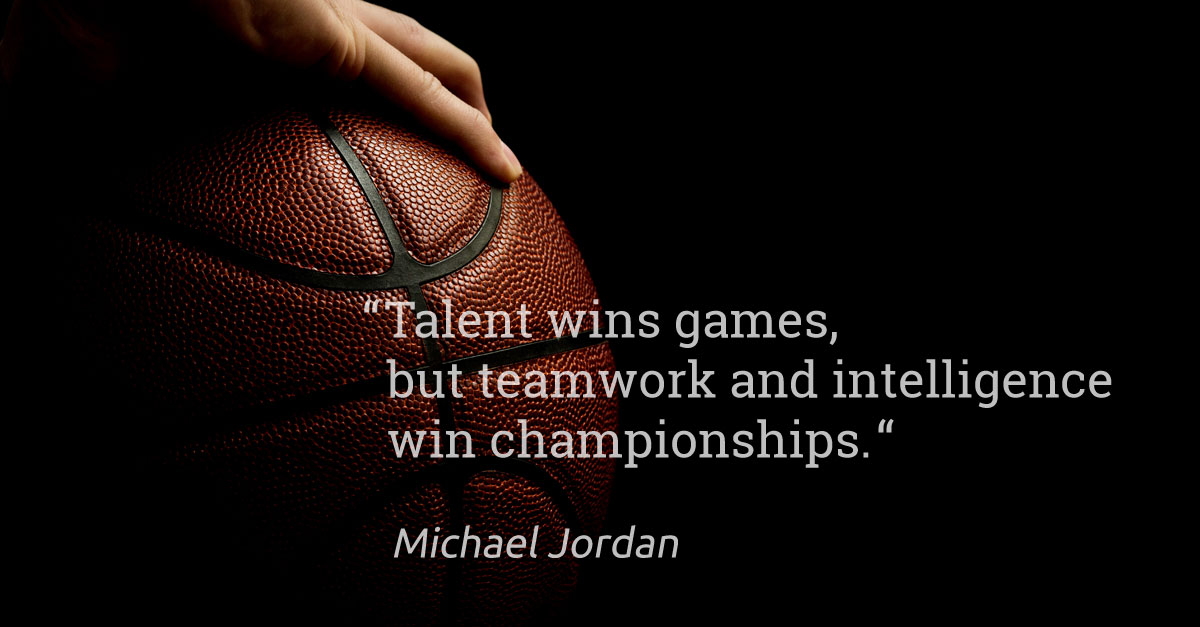International project management: which basic skills you need today

Michael Jordan is one of the greatest basketball legends in the US. However, even Michael Jordan knew that his basketball talent alone would not have enabled him to win his many awards and make it into the Basketball Hall of Fame.
It took a team effort to win the numerous national and international championships and titles. Michael Jordan was not only a captain. The key to his success was his ablility to motivate himself and the team as a cohesive unit to achieve top performance.
The need for adaptability
International project managers face a similarly challenging task: they have to empower intercultural project teams to excel and jointly lead the project to success.
At the same time, project managers are working in an increasingly complex environment. Globalization, digitization and the rapid changes (catchword: VUCA) bring along new challenges that require a special set of soft skills. Cultural diversity and geographical distance are just two challenges among numerous others they have to successfully master today.
Yet what broader repertoire of skills do international project managers need to have on the field or in the project to meet these challenges? Is there even a panacea for international project management at globally operating companies?
For three years now, I have been supporting and managing international supply chain projects at SupplyOn. These projects included implementing a wide range of SCM processes at an elevator manufacturer in Asia, introducing e-invoicing at a global engineering company in India, and connecting new plants at our manufacturing and railway customers worldwide. In the process, I have repeatedly noticed various skills and abilities that have contributed decisively to the success of the projects.
What skills do you need?
Here are the most important skills from my perspective:
Emotional intelligence
Project managers are neither lone warriors nor a “one-man/one-woman show”. They gather insights from customers and project team members and efficiently incorporate it into their work while keeping an eye on the project goal.
Adaptive communication
Intercultural communication is becoming increasingly important in today’s global business world. Project managers understand how to communicate their ideas, orally or in writing, to the project team and other stakeholders. They make sure that everyone understands these ideas—no matter in which department they work, which background they have or which cultural groups they belong to.
Interpersonal skills
Project managers build and maintain positive relationships quickly and easily. This applies equally to working with customers and stakeholders as well as with their own project team.
Management skills
Project managers are motivators and team players at the same time. They succeed in motivating the project team, keeping them focused on the goal, and fostering cooperation among project team members.
Business skills
Project managers think “outside-the-box.” They accumulate knowledge about their customers and about the industry. In addition, they also manage to align project work with clients’ business strategies.
Flexibility
Project managers are flexible and can, if necessary, also revise their approach when the project object and the business require this. In general, “know-it-alls” do not fit into project management.
Analytical aptitude
Project managers analyze problems as they arise and make decisions based on this analysis.
Customer focus
Project managers can put themselves in the shoes of their customers and users. They focus on the success of the company and thus on the needs of the client.
Result orientation
Project managers lead projects efficiently and effectively to their goal and bring them to a close. In doing so, they pay attention to low-effort, “lean” work and well-structured processes that are transparent to others.
Curtains up for competent, communicative moderators and team players!
In international project management, it is definitely no longer enough to be a classic ‘doer’ type of person with purely technical expertise. Rather, it is about building and connecting intercultural project teams. Project managers not only need a profound knowledge of methods. They also have to motivate the project team to efficiently collaborate.
Technical experience is the foundation, for sure. Based on this experience, project manager can then intervene directly when necessary. Moreover, today’s leaders are communicative, competent and possess profound qualifications in the above-mentioned areas.
As far as the panacea is concerned, I have to put you off at this point—there is no none. Like so many things in life, it takes commitment, willpower and passion to acquire these skills over time and to apply them intelligently in project management.
In my view, it is essential that corporate culture and top management level mirror this adaptability. The concept of agile software development, which already works with lean, cross-functional and self-organizing teams, is a good example and role model here.



